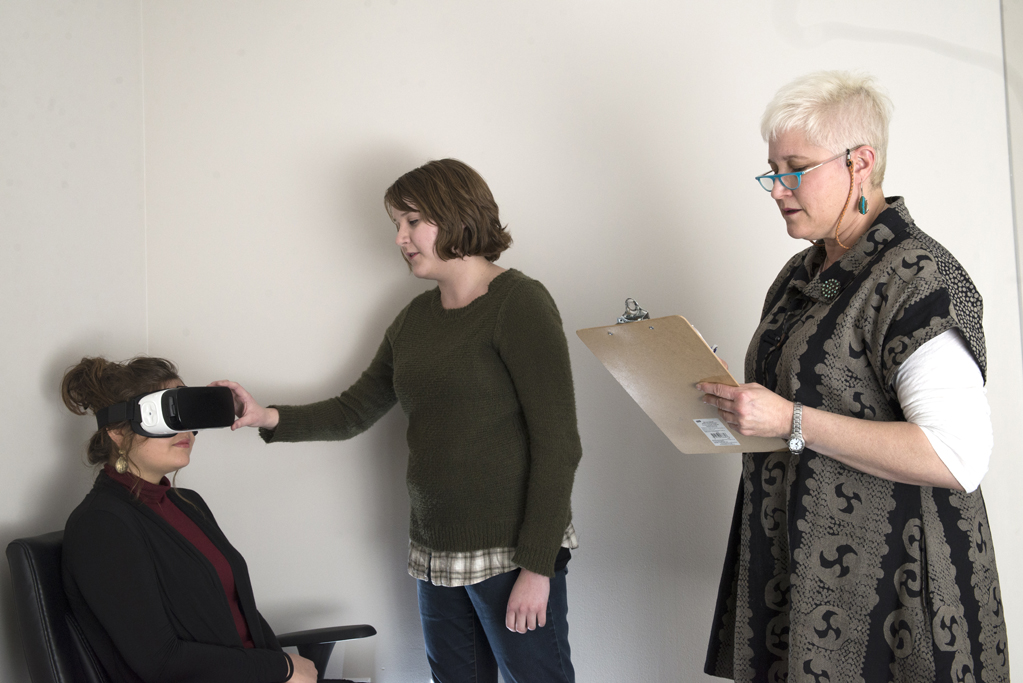What if virtual reality could help people be happier in their actual reality?
Heidi Wayment, a professor of social psychology at Northern Arizona University, studies what she calls the “quiet ego”—a set of characteristics that can be cultivated to create a more compassionate sense of self, leading to positive implications for an individual’s health and well-being.
Wayment and Ann Futterman Collier, an associate professor of clinical and health psychology at NAU, are combining the concepts of the quiet ego and virtual reality as they begin clinical applications to test virtual reality’s effectiveness on mental well-being interventions in their Applied Research with Immersive Experiences (ARIES) lab at NAU.
There are four characteristics of the quiet ego, Wayment said: detached awareness, or mindfulness; sense of interconnectedness with others; perspective-taking; and growth, or the ability to conceptualize challenges as an opportunity for meaningful personal development.
“In a recent study, we have found that by encouraging people to think about these key quiet ego principles through a contemplative intervention, people not only increased these quiet ego characteristics, but improved pluralistic thinking and reduced mind-wandering,” Collier said. “Thus, our findings suggested that a simple intervention with the quiet ego may help people going through stress to cope more effectively.”
The two are examining the quiet ego when delivered through virtual reality technology, which uses a combination of audio and visual stimulation, often in the form of nature scenes, to users.
Unlike standard-format audio recordings, which they previously used in the quiet ego trials, virtual reality offers a more comprehensive and immersive environment, allowing users to better engage quiet ego characteristics.
“Virtual reality seemed like a natural way to increase engagement and arousal when delivering psychological interventions,” Collier said. “Previous research on virtual reality suggests most psychological interventions, when delivered through immersive and interactive technology, are more effective than standard treatments so far. Our preliminary results do indeed support this.”
Currently, the ARIES team is in the midst of conducting studies with university students, a population that exhibits higher-than-average levels of stress and anxiety. In the future the team plans to develop quiet ego applications to help individuals coping with severe stress and post-traumatic stress disorder and those undergoing cancer treatments.
The research is done in conjunction with the Immersive + Interactive Virtual Reality Lab.



